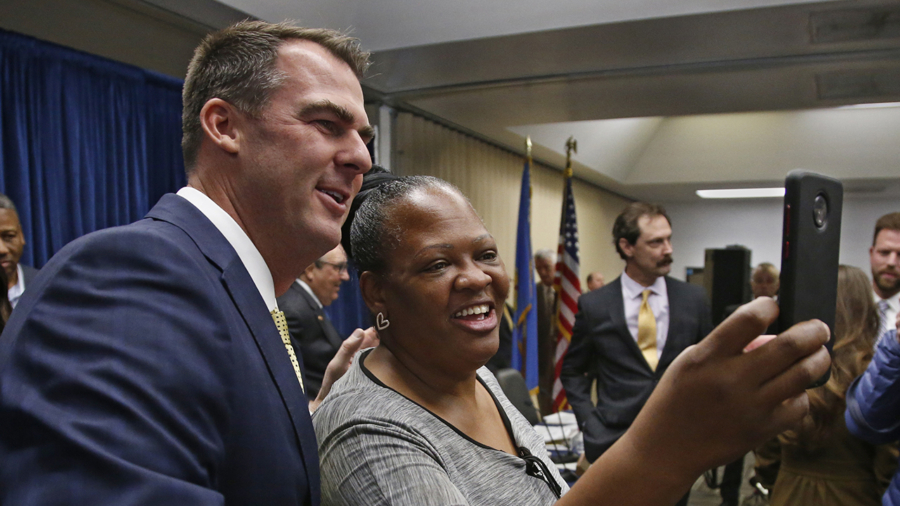In what state officials are saying is the largest single-day mass commutation in U.S. history, over 450 inmates are being released from prisons across Oklahoma.
The release of inmates, all with convictions for low-level drug and property crimes, is the result of a bill signed by new Republican Gov. Kevin Stitt.
The bill retroactively applied misdemeanor sentences for simple drug possession and low-level property crimes that state voters approved in 2016.
According to the Oklahoman, Steven Bickley, executive director of the Pardon and Parole Board, said around the time the bill was passed, that the staff at the Department of Corrections had gone “over and above” what’s necessary.
“The cross agency collaboration has truly been amazing,” he mentioned during a Pardon and Parole Board business meeting in Oklahoma City. ” … Everyone has rallied around making this happen.”
Making the reduction of Oklahoma’s highest-in-the-nation incarceration rate one of his top priorities, Stitt has appointed reform-minded members to the state’s Pardon and Parole Board.
Last week the board reviewed 814 cases and recommended 527 inmates for commutation. However, 65 are being held on detainers, leaving about 462 inmates to be released on Monday.

In an interview with KOCO News 5, Lana Lemus, one of the 13 inmates released from the Kate Barnard Correctional Center in Oklahoma City, said she is happy to finally be able to go home and see her daughter.
“Ecstatic! It’s the great thing that the governor is doing so we can be home with our kids. Been out of her life for three years. But she’s my hope. She’s never given up on me,” said Lemus.
The commutation is one of many prison reform efforts in Oklahoma aimed at reducing overcrowded prisons while helping low-level offenders become self-sufficient rather than face reincarceration.
“I applaud the Pardon and Parole Board’s dedication to fulfill the will of the people through the HB 1269 docket, giving hundreds of non-violent, low-level offenders an opportunity at a second chance,” said Gov. Kevin Stitt in a written statement.
“I also thank the Department of Corrections and the many non-profits who are stepping up and working hard to connect our inmates with the resources they need for a successful transition. This event is another mark on our historic timeline as we move the needle in criminal justice reform.”
In 2016, Oklahoma passed reforms that would turn some low-level felonies—like possession of a small amount of drugs—into misdemeanors. The threshold for a property crime becoming a felony also increased, from $500 in property value to $1,000 in value.

“Had these inmates served their full uncommuted sentence, it could have cost the State of Oklahoma approximately $11.9M for continued incarceration based upon the average costs,” the Pardon and Parole Board said.
Commutation isn’t the only effort to reform criminal justice reform in the state. The Oklahoma Department of Corrections held its first “transition fairs” for inmates at 28 facilities across the state, the Pardon and Parole Board said.
“More than 200 people from 45 community partners, nonprofits, and state agencies attended,” the board said. “These fairs connected 781 inmates with the services they may need once released.”
AP and the CNN-Wire contributed to this report.

